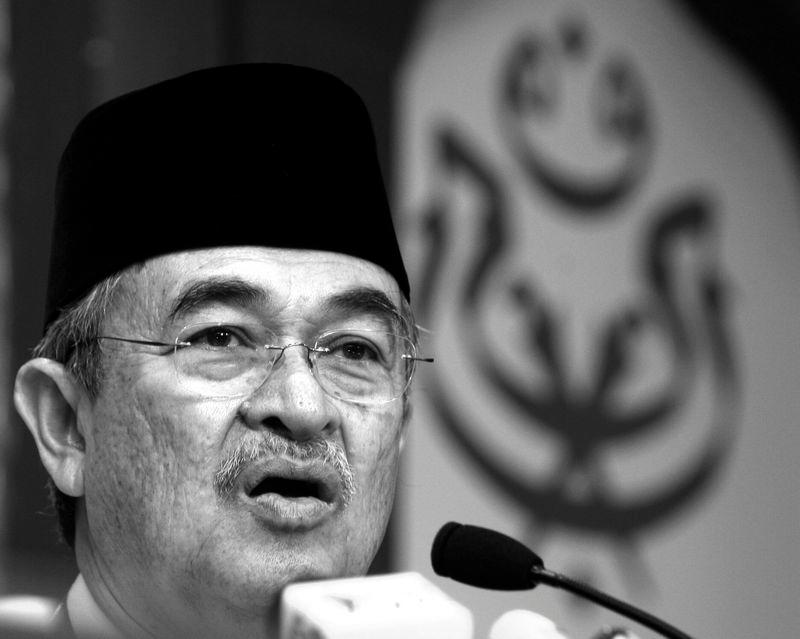KUALA LUMPUR: Reflecting on the contributions of Tun Abdullah Ahmad Badawi would be incomplete without mentioning Islam Hadhari, which stands as a crucial legacy of the former premier’s administration.
Introduced in 2004, just a year into Abdullah’s tenure as Malaysia’s 5th Prime Minister, this vision statement laid the foundation for developing the ummah and the nation through the perspective of Islamic civilisation.
Islam Hadhari, one of the key pillars of Abdullah’s leadership, emphasised efforts to elevate the quality of life through the acquisition of knowledge and the development of human capital and physical infrastructure, which are fundamental to the construction of civilisation.
It aimed to make Malaysia an advanced Islamic nation based on its own reference points.
Hailing from an esteemed religious family and holding a Bachelor’s degree in Islamic Studies from Universiti Malaya, Abdullah’s upbringing shaped his leadership towards an Islam-centric approach while also balancing nation-building within the framework of Manhaj Hadhari.
Fondly known as Pak Lah, Abdullah outlined 10 fundamental principles to achieve Islam Hadhari, namely faith and devotion to Allah; a just and trustworthy government; independent-minded people; mastery of knowledge; balanced and comprehensive economic development; a good quality of life; advocacy for the rights of minority groups and women; cultural and moral integrity; conservation of nature; and the strong defence capabilities.
Commenting on this concept, Tun Abdullah Ahmad Badawi Legacy Organisation (LEGASI) chairman Datuk Jefridin Atan said the Islam Hadhari approach has positioned Malaysia as a model civilised nation rooted in Islam, in line with global progress and modernisation.
“Malaysia is renowned globally for implementing pragmatic and impactful economic development programmes for the ummah. The government also embraces Islamic values without sidelining any sentiments towards non-Muslim communities,” he told Bernama.
Jefridin, who is also Kukup assemblyman in Johor, highlighted that the legacy of Islam Hadhari is evident to this day in the country’s management and administration, such as in Islamic banking and finance systems and the halal economy.
Various Islamic-based institutions have been established, including the Department of Waqf, Zakat and Haj (JAWHAR), Waqaf Foundation of Malaysia, and the j-QAF Programme for teaching Jawi, Al-Quran, Arabic language and Fardu Ain.
Jefridin noted that this approach has made Islam the foundation of governance and administration in the country, and its continuity can be seen today through the Malaysian MADANI concept introduced by the 10th Prime Minister Datuk Seri Anwar Ibrahim.
“The continuity of Islam-based policies became apparent after Pak Lah inspired Islam Hadhari. (The 6th Prime Minister) Datuk Seri Najib Tun Razak’s Wasatiyyah (moderation) approach and Anwar-led MADANI Government also gave emphasis on religion,” he added.
Aside from being well-received by non-Muslim communities in Malaysia, Jefridin said the Islam Hadhari concept has also garnered attention from the international community.
This can be seen through collaborations between the Institute of Islam Hadhari at Universiti Kebangsaan Malaysia (UKM) and several countries such as Taiwan, Japan, Spain and Uzbekistan, which view Malaysia as a model for constructing Islamic civilisation in the contemporary era.
According to Jefridin, LEGASI is actively engaged in partnerships with various institutions such as the Malaysian Institute of Islamic Understanding (IKIM) and UKM’s Institute of Islam Hadhari to promote advocacy programmes such as lectures, forums and roundtable discussions.
“Pak Lah’s legacy, such as the halal economy, is also being championed by LEGASI in collaboration with the Faculty of Economics and Management at UKM and Kyoto University in Japan,” he said.
Jefridin highlighted that programmes carried out with academia would ensure the continuity of the Islam Hadhari legacy while also demonstrating that the ideas inspired by Pak Lah are universal and relevant to any developments and changes in time.
In the words of the Malay proverb, Harimau mati meninggalkan belang, manusia mati meninggalkan nama (A tiger leaves its stripes in death, a man leaves behind his name), Pak Lah’s legacy through Islam Hadhari continues to leave its mark.
Abdullah breathed his last at the National Heart Institute (IJN) at 7.10 pm today at the age of 85.









